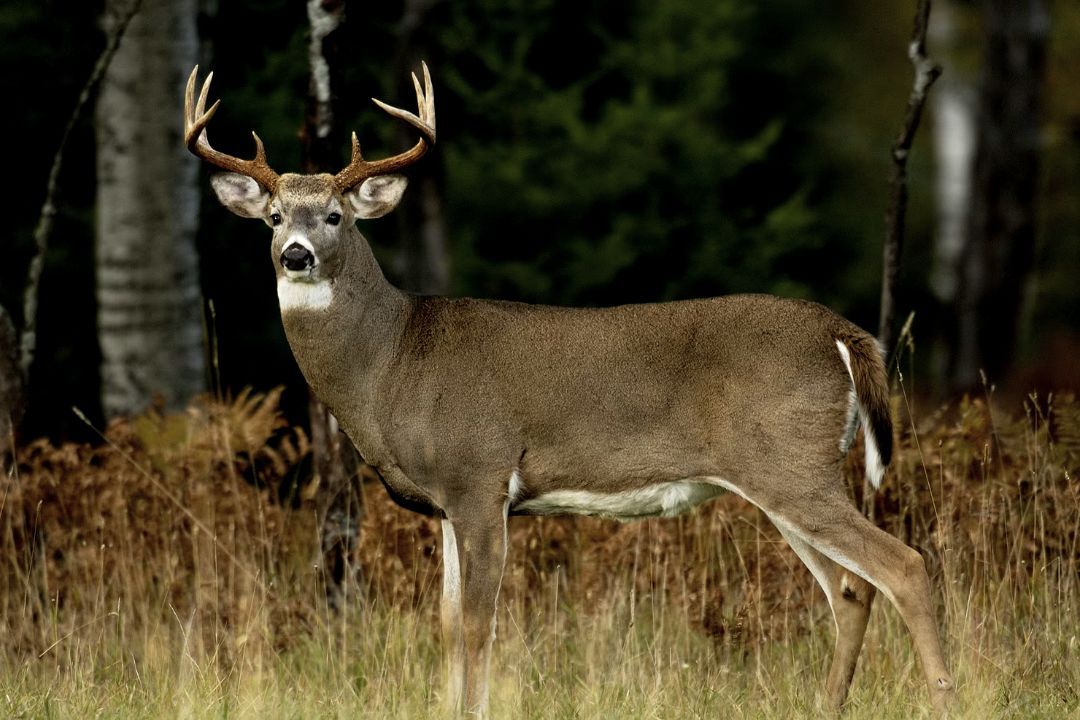How to Choose the Right Choke for Dove Hunting
One of the most important factors in successful dove hunting is using the proper choke. But with all of the different types of chokes on the market, it can be tough to know which one to choose. Let's take a quick look at choosing the best ones for you
Imagine this: You're out in the field, the sun is shining, and the doves are flying high. You've got your trusty shotgun in hand, ready for action. But then, as you aim a fast-flying dove, you miss! The frustration sets in, and you can't help but wonder, "Did I choose the wrong choke?"
Fear not, fellow dove hunters! In this blog post, we'll guide you through the exhilarating world of chokes and help you make the right choice for your next hunting adventure.
We'll break down the different types of chokes and their unique characteristics and offer tips on choosing the perfect one for your shotgun and shooting range.
So, buckle up and join us on this wild ride to becoming a choke-savvy dove hunter, ensuring more successful shots and unforgettable memories in the great outdoors!
Understanding Chokes
A choke is a constriction at the end of a shotgun barrel designed to control the spread or pattern of the pellets as they exit the barrel. The level of constriction determines the tightness of the shot pattern, which directly impacts the range and effectiveness of your shots.
Chokes play a crucial role in dove hunting, as they determine the spread and pattern of shot pellets, ultimately impacting your success rate.
Let's explore the different choke types and their characteristics, advantages, and ideal shooting ranges.
Full Choke: Tightening Your Shot Pattern
The full choke is your go-to option for maximum range and a tight shot pattern. It excels at long-range shots, ensuring a concentrated spread of pellets for increased accuracy. Picture yourself aiming at a dove soaring 40 yards away—the full choke helps you deliver a powerful shot with precision.
However, due to its tight pattern, using a full choke for close-range shots can lead to pellets tightly grouping, potentially damaging the bird or missing completely. Therefore, assessing the shooting distance and adjusting your choice is crucial.
Modified Choke: Versatility at Mid-Range
The modified choke balances pattern tightness and versatility if your hunting style involves a mix of short and mid-range shots. It offers a moderate constriction, allowing for effective shooting up to around 35 yards.
The modified choke provides a slightly wider shot pattern than the full choke, increasing the chances of hitting a moving target within a reasonable distance. It offers a reliable option for most dove hunting scenarios, where engagements occur at varying ranges.
Open Choke: Up Close and Personal
As the name suggests, an open choke provides the widest shot pattern among the different choke types. It is suitable for close-range encounters, typically within 20 yards or less. Imagine a dove swiftly darting before you—this is where the open choke shines.
Using an open choke at a significant distance may result in pellets spreading too far apart, decreasing the likelihood of a clean hit. Therefore, reserve the open choke for situations where the doves are within proximity, giving you a higher chance of success.
Improved Cylinder Choke: The All-Around Performer
The improved cylinder choke is reliable for those seeking versatility and adaptability in their dove-hunting endeavors. It balances the full and open chokes, offering a moderate constriction that accommodates long and short-range shots.
With the improved cylinder choke, you can effectively engage targets within a wide range of distances. Its versatility makes it the most popular choice among hunters who encounter various shooting scenarios and prefer a middle-ground solution.
Understanding the characteristics and suitable applications of each choke type empowers you to make informed decisions based on the specific hunting situation. Choosing the right choke maximizes your chances of a successful dove hunting experience.
Factors to Consider When Choosing a Choke
Choosing the right choke for dove hunting requires careful consideration of various factors that influence your shooting experience. Let's explore these essential factors to help you make an informed decision and enhance your hunting prowess.
A. Distance of Shots
When it comes to choosing the right choke, distance matters. Close-range shots (25 yards or less) call for an open or improved cylinder choke, while medium-range shots (up to 35 yards) require a modified choke. A full choke is your best bet for those long-range shots (over 35 yards). Remember, the key is accuracy!
B. Type of Hunting
The type of hunting you engage in can also influence the ideal choke. For instance, if you're stalking doves in dense foliage, a more open choke may be better suited for quick, close-range shots. On the other hand, if you're hunting in wide-open fields, a tighter choke can help improve your chances of success at longer ranges.
C. Personal Preference
There's no one-size-fits-all when it comes to chokes. What works for one hunter might not work for another. So, take the time to experiment with different chokes and find the one that feels most comfortable and delivers the best results for your unique shooting style.
D. Gauge of Shotgun
The gauge of your shotgun plays a role in choke selection, too. Smaller gauges, like 20 or 28 gauge, often benefit from tighter chokes to maintain pellet energy downrange. Conversely, larger gauges, such as 12 gauge, can perform well with more open chokes due to their higher pellet count and energy.
E. Shot Size
Lastly, consider the shot size you'll be using. Smaller shot sizes (#7.5, #8, or #9) pair well with tighter chokes for increased pellet density and effective patterns. Larger shot sizes (#6 or #7), on the other hand, may require more open chokes to avoid excessive pattern density and ensure sufficient pellet energy for ethical harvests.
F. Shotgun Compatibility
Opt for a choke that aligns with the design and functionality of your shotgun, ensuring a seamless and reliable hunting experience. Different shotgun types, such as pump-action or semi-automatic, may have specific compatibility requirements. For instance, using an open choke with a pump-action or semi-automatic shotgun can increase the risk of jamming due to the wider shot pattern.
Remember, the journey of finding the right choke is as thrilling as the hunt itself. So, equip yourself with knowledge, embrace versatility, and embark on your quest to unlock your hunting potential.
Additional Tips for Choosing the Right Choke
Here are some tips to help you choose the perfect choke and optimize your dove-hunting adventures:
A. Use the Right Choke
Selecting the right choke is essential for a successful dove hunting experience. Be mindful of the distance you'll be shooting and choose a choke that matches your specific needs, whether open, modified, or full.
B. Don't Over-Choke Yourself
Avoid using an overly tight choke for close-range shots, as it can lead to missed opportunities and frustration. Instead, opt for a more open choke that provides a wider shot pattern, increasing your chances of hitting those quick-flying doves.
C. Consider the Type of Hunting
Your hunting environment plays a crucial role in choke selection. Dense foliage calls for a more open choke, while open fields may require a tighter choke for longer-range shots. Adapt your choice based on the terrain and conditions you'll be hunting in.
D. Experiment with Different Chokes
Every shotgun and shooter is unique, so don't be afraid to try different chokes to determine which one works best for you. Test various options during practice sessions or hunts to find the perfect match for your style and skill level.
E. Choose the Right Shot Size
Pair your choke with the appropriate shot size for optimal results. Smaller shot sizes work well with tighter chokes, while larger ones may require a more open choke. The right combination will ensure effective shot patterns and clean, ethical harvests.
F. Practice Shooting with Different Chokes
Practice makes perfect! Spend time at the range or field shooting with different chokes to hone your skills and gain confidence in your abilities. This will help you determine the best choke for your needs, ultimately leading to more successful and enjoyable dove hunts.
Conclusion
Now that you know more about the different types of chokes, it's time to choose the right one for your next dove hunt. But whatever you choose, make sure your firearm is properly sighted in.
And if you are in the market for the best dove-hunting chokes, you don't have to worry about the pain of searching through hundreds of products. We have worked hard for you and selected the best chokes for hunting doves.
Just tap the button below, check out our article on the best dove-hunting chokes, and pick one of our top choices. You won't be disappointed.

Some other articles that you will love:
Also, look at some other short reads:





